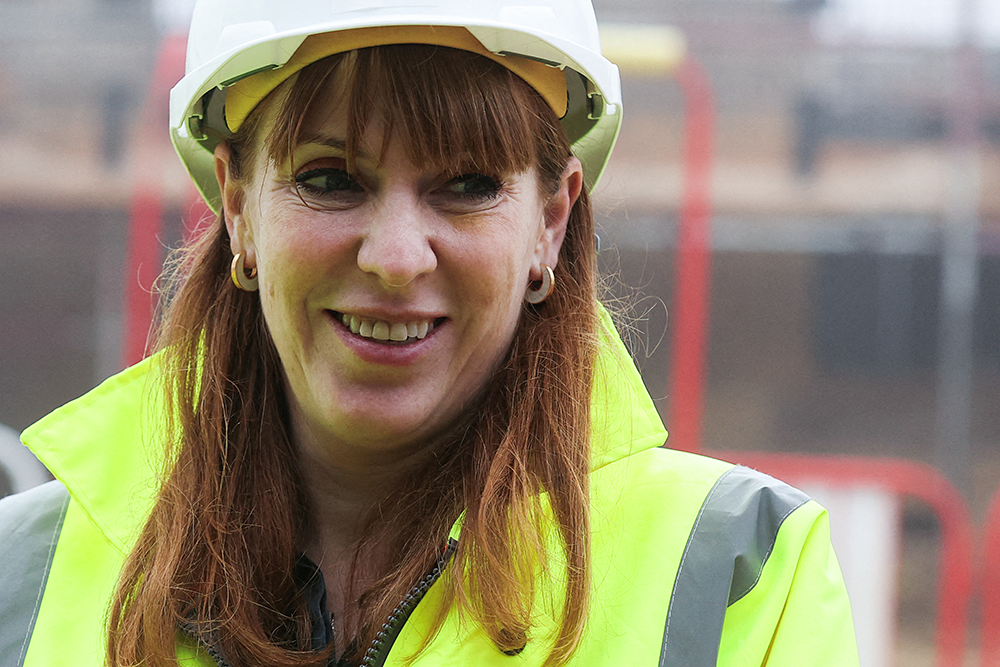
Barely noticed amid all the other bad news and political shenanigans, there’s a slump in UK housebuilding that makes Labour’s promise of 1.5 million new homes within this parliament not just ‘stretching’, as the departed minister Angela Rayner called it, but a Truman Show fantasy of utopian suburbs that will never exist. Glenigan, a data provider for the construction industry, reports that residential ‘main contract awards’ in the three months to the end of August were down 44 per cent on last year and detailed planning permissions down 42 per cent. In London, only 2,158 new homes – a tiny fraction of anyone’s target or expectation – were started in the first half of the year.
Skilled workers are in short supply and building cost inflation has beenamplified by the hike in employers’ nationalinsurance contributions.Builders face unworkable post-Grenfell safety laws for blocks of flats, plus planningbacklogs and wrangles over the proportion of social housing to beprovided or paid for byprivate developments.Help-to-buy has gone,buy-to-let is dead, stamp duty went up in April and interest rates have been slow to fall, all combining to depress new-build sale prices. In the social sector, housingassociations are strapped for cash and tied up in cladding issues.
In short, the 1.5 million pledge is far beyond reach despite talk of planning reforms, new towns and cash for affordable schemes. According to Red Flag, Michael Ashcroft’s account of Sir Keir Starmer’s ‘uneasy’ Downing Street debut (re-published in April), Rayner knew she’d been stitched up with an impossible brief and repeatedly threatened to resign until assuaged by a call from Tony Blair. One almost wonders if her sacking following herpersonal homebuying scandal is a relief as she can now pass the poisoned chalice to asacrificial Starmerite. Labour-watchers arebetting she’ll make a comeback as soon as Starmer falls: in which case the next prime minister – Andy Burnham if it be he – should re-award her the housing portfolio as penance for mischief.
Swiss unzipped
Hard to suppress a twinge of schadenfreude at the misfortunes of Nestlé, Switzerland’s flagship food-and-beverage multinational. Described by the Financial Times as ‘famously buttoned-down’, this pillar of the European corporate establishment has been caught unzipped: chief executive Laurent Freixe was sacked this month over ‘a romantic relationship with a subordinate’ which he denied. He will be followed out of the door by chairman Paul Bulcke, whose retirement has been advanced under reported shareholder pressure.
In recent decades, Nestlé has weathered bad press abroad ranging from criticism over its aggressive marketing of baby formula to allegations of child labour in its cocoa supply chain, while maintaining a subfusc profile at its Lake Geneva HQ. Meanwhile, the share price has retreated as investors lost confidence in a strategy of staying big rather than focusing on winning lines: any company that owns 2,000 brands from Perrier to Purina is, in today’s market opinion, ripe for break-up.
But incoming chief Philipp Navratil (previously in charge of Nespresso, a product that certainly wins this column’s approval) has promised to make the company ‘better, faster and smarter’. Good luck with that; for now, Nestlé stands with the late Credit Suisse – the scandal-wrecked bank that had to be swallowed by its rival UBS – as a Swiss national embarrassment.
Banks beware
Corporation taxes generate only one tenth of total UK tax revenues. In well-ordered regimes, the calibration of levies on companies is as much about boosting investment and growth as it is about raking cash into the Treasury. But that’s never how the issue is addressed at party conferences, hence the Lib Dem deputy leader Daisy Cooper’s call for a windfall tax on banks to fund home loans for heat pumps. Hence also persistent rumours that Rachel Reeves is planning another raid on the financial sector, despiteLondon banks already paying higher overall tax rates than competitors in Amsterdam, Dublin and Frankfurt. Right now we desperately need banks to be lending to housebuilders and high-growth companies, not shrinking their balance sheets while hunting for cunning tax dodges. But banks don’t vote and citizens don’t love them, so they’ll always be the Chancellor’s target of choice.
Good for Gatwick
London urgently needs more airport capacity but a combination of eco-campaigners, flightpath MPs and Treasury cost-counters will always conspire to stop Heathrow adding a third runway. I’d call that a fair summary of the past half-century of aviation planning for the capital– so a scheme to bring Gatwick’s standby runway into full use by moving it 40 feet northwards at a modest £2.2 billion cost, with the prospect of completion by 2030, sounds almost miraculous.
Not if your Sussex garden is about to be blighted by an additional 190 flights per day, but at least the airport is offering to pay your moving costs. The Gatwick go-ahead is an entirely sensible decision by the Transport Secretary Heidi Alexander and one that (if objectors don’t find ways to block it) will partially make up for years lost in policy reviews and reversals, even if it also knocks back the possibility of Heathrow expansion.
In plain terms, without improved transport links, we’ll have even lower growth and less inward investment. That inter alia means fewer resources to develop clean transport – bearing in mind aviation’s carbon sins are already smaller than those of the world’s ever-expanding IT and data networks. Incidentally, we can also be grateful to Gatwick for eliciting a rant from the new Green leader, Zack Polanski, about ‘multi-millionaires and billionaires who are flying extremely frequently [and] big businesses behind the aviation industry who also donate to the Labour government’ – illuminating just how hard-left his party has become.








Comments